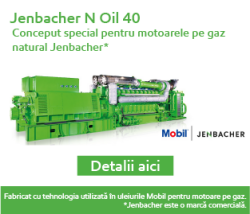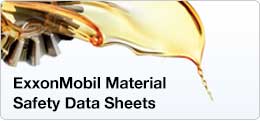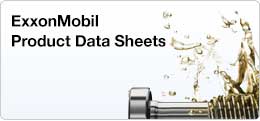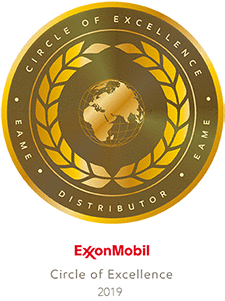5 frequently asked questions about lubricants for commercial vehicles
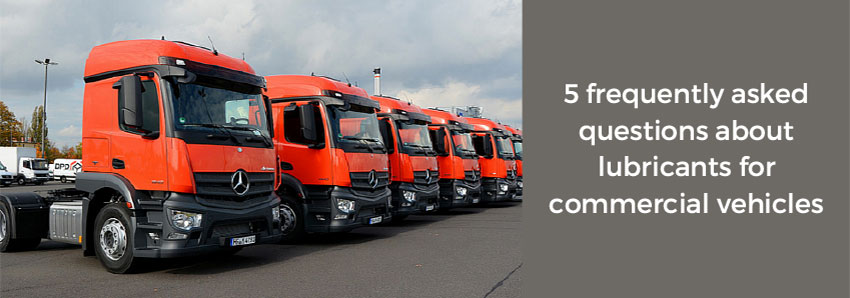 5 frequently asked questions about lubricants for commercial vehicles
5 frequently asked questions about lubricants for commercial vehicles
Regardless of the size of your fleet of commercial vehicles, choosing the right lubricants can contribute to substantial savings when it comes to maintaining and running your fleet under maximum efficiency conditions.
In this regard, see below the answers to 5 frequently asked questions related to the choice of lubricants for commercial vehicles. You will learn about important aspects that can later get you out of potential troubles regarding the costs associated with the maintenance and lubrication program for the vehicles that are part of your fleet.
1. Can you determine the quality of a lubricant by analyzing its viscosity?
While viscosity is an important characteristic, it says nothing about the quality of a lubricant. To be sure that you choose a high-quality oil, which protects the engine of the vehicles in your fleet, always follow the vehicle manufacturer's specifications. For example, the lubricants from the Mobil Delvac range are recommended by over 300 original equipment manufacturers (OEMs) worldwide.
2. Is it true that if you change the engine oil regularly, you can choose a cheaper engine oil?
Some people believe that a cheap oil equals low maintenance costs, but this is a myth. A cheap oil has protective properties that last less than those of a slightly more expensive oil.
Thus, even if initially you pay less when you choose a cheaper oil, in the long run you lose more because you have to change the oil more often.
3. Is fuel consumption affected by the choice of the engine oil?
The choice of lubricants for commercial vehicles can have a major impact on fuel saving. For example, as we have shown here, an oil such as the Mobil Delvac 1 LE 5W-30 can provide fuel savings of over 2%, compared to an oil classified under a 10W-40 viscosity grade.
4. Why are the quality standards for the oils recommended by the manufacturers of commercial vehicles changed so often?
The amendment of the performance standards for oils is influenced by the constant evolution of emissions systems and by the regulations regarding environmental protection. In order to comply with these regulations, the commercial vehicle manufacturing industry is constantly developing more advanced emissions systems. Therefore, the formulas of the lubricants distributed in Romania through Star Lubricants are also becoming more efficient to keep up with the latest emission standards.
For example, the new Mobil Delvac 1 LE 5W-30 formula meets the requirements of most Euro VI engines developed by original equipment manufacturers (OEMs) such as Mercedes-Benz, Volvo, Cummins and MAN 1.
5. Is it advisable to replace mineral oils with synthetic oils after using the mineral ones for a long time?
The synthetic lubricants from the Mobil Delvac 1 range are fully compatible with the correspondent mineral oils. The performance of synthetic lubricants is typically more constant, especially with regard to their stability in temperature differences conditions, compared to mineral lubricants. In this respect, the shift to using mineral lubricants would bring significant benefits regarding the efficiency of the lubrication program.
Severe operating conditions of heavy commercial vehicles fleets represents one of the main factors that may lead to unplanned failures and losses regarding the profit of commercial vehicles operators.
With this in mind, the choice of the right lubricants for the commercial vehicles fleet can bring you substantial savings in fuel consumption and vehicle maintenance. To choose a lubrication program that can bring you such benefits, click on the image below and request a customized offer for the Mobil Delvac lubricants intended for commercial vehicles fleets.




